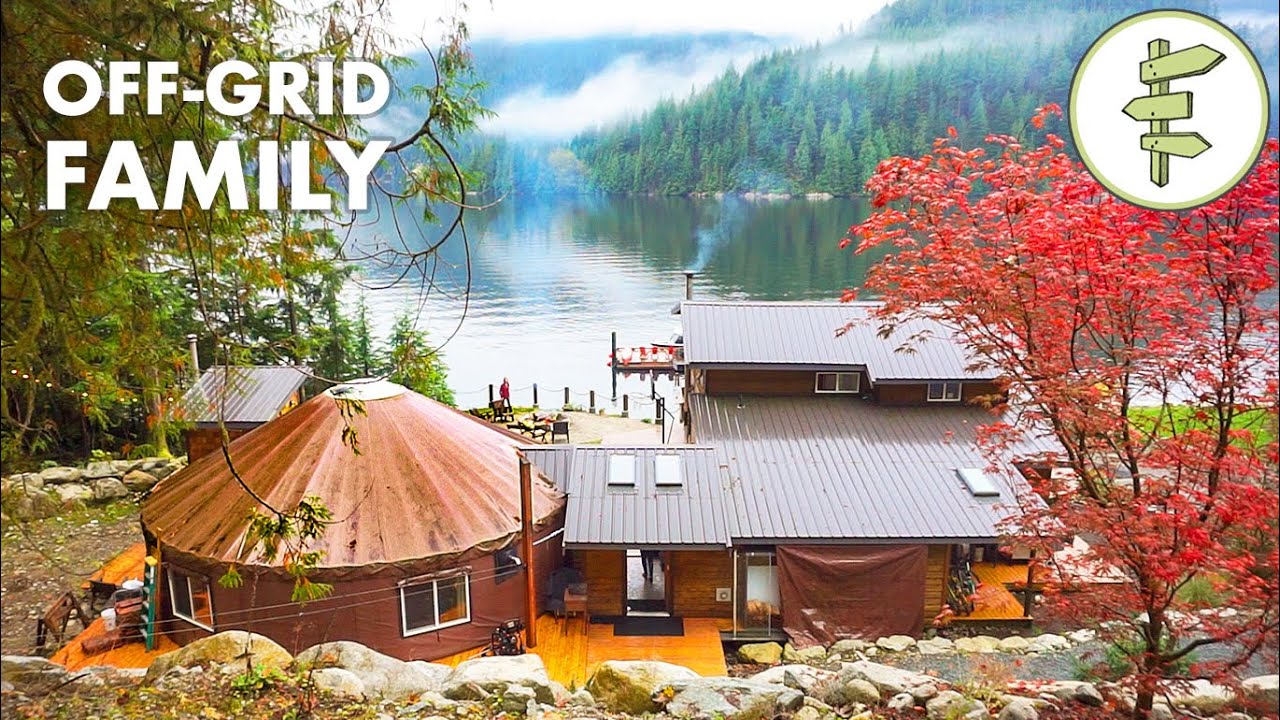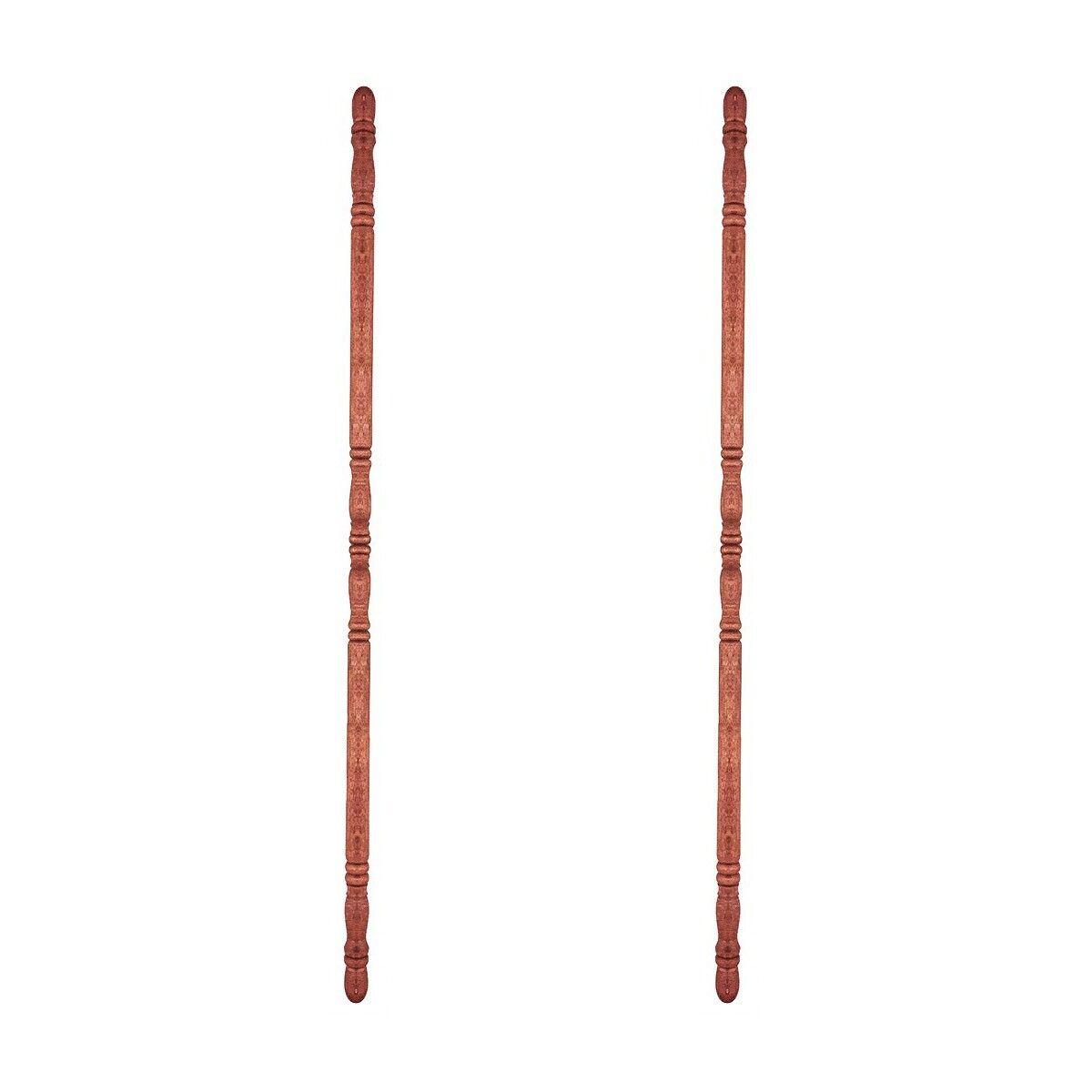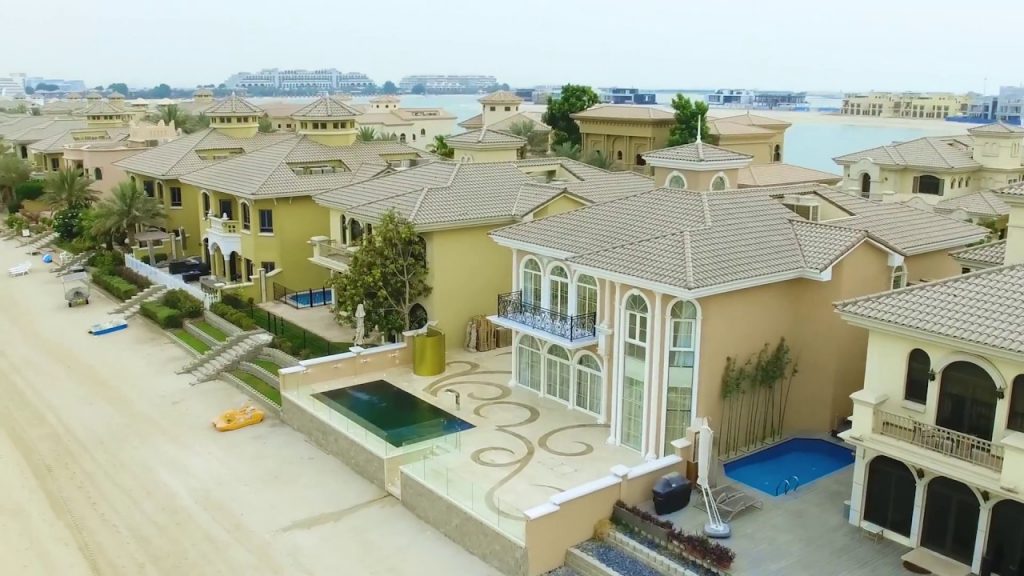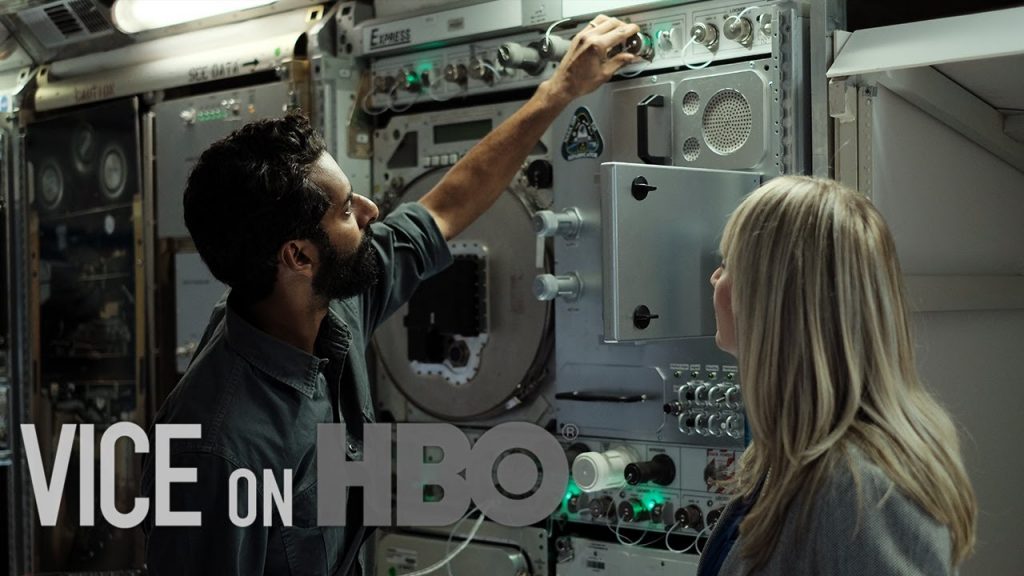Family of 5 Living Off-Grid | BOAT ACCESS ONLY

Mark and Chera rescued and renovated an old cabin and transformed it into an epic off-grid home for their family of 5.
The catch? There’s no road to get there, so they had to figure out how to do absolutely everything by boat and barge: transporting building materials, equipment, belongings, workers, as well as commuting to and from town for school and work.
They were limited in how much they could modify the existing cabin, so to make space for the kids’ bedrooms, they attached a yurt to the house with a mudroom. For heat, they have a wood stove in the house, a pellet stove in the yurt (to keep a constant temperature for the kids), and backup wall-mount propane heaters for really cold days, or times when they’re away from the house during winter (to prevent pipes from freezing). Since propane has to be delivered on a barge, it’s really expensive so they try to limit their propane use as much as possible.
For electricity, they have 3 systems. First, a solar power system with 18 panels and a large battery bank which works great in the summer even though they’re surrounded by mountains. But during the colder, rainier months, the system doesn’t keep everything running so they installed a hydro turbine which creates electricity using water pressure from a creek up the hill, and this provides 24 hour electricity for most of the year. As a backup to these two systems, they have a propane generator but they try not to use it unless they need to.
The kids still attend school in town, and Mark and Chera have flexible jobs so they can work in town or from home as needed. They have 2 enclosed boats with GPS and heat for the 20 minute commute back and forth to All music in this video was composed, performed, and recorded by Mat of Exploring Alternatives.
How does the family source their food and water while living on the boat?
Family of 5 Living Off-Grid | BOAT ACCESS ONLY
Living off-grid is an increasingly popular choice for people who want to lead sustainable, self-sufficient lives. Often, though, such a lifestyle is associated with living in the woods, surrounded by tall trees and a wild, remote environment. However, for one family, living off-grid means living on a boat with no access to land.
The family of five, composed of parents and three children, left their traditional lifestyle behind to start on this unconventional path. The family’s home, a custom-built boat named “River and Sea,” is a haven for those who seek to disconnect from the world and live in harmony with nature.
The boat is anchored in an undisclosed location, only accessible through a strenuous boat trip, which they take every two weeks to resupply their essentials such as food, water, and fuel. The family is wholly self-sufficient, relying on solar panels and a wind turbine for their electricity needs. They also practice sustainable gardening techniques, raising livestock and growing crops on their floating homestead.
Living on a boat provides ample opportunities for the family to connect with the natural world around them. The family fishes for their food, frolics in the water, and enjoys stunning sunsets as they drift off to sleep. Their daily activities are a stark contrast to the hectic, technology-driven world that most people are accustomed to.
While the family’s way of life might be seen as unconventional, their aim is to teach people that living in tune with nature is crucial for the health of the planet. The lack of technology and connectivity has allowed them to focus on the present, value simple pleasures in life, and appreciate nature’s beauty.
Though a life on the water might not be ideal for everyone, the River and Sea family is proof that it’s possible to live an off-grid lifestyle in unconventional ways.
Living off-grid opens the possibility of living a simpler life. It allows us to minimize our carbon footprint while maximizing our connection to nature. The family of five living on their boat shows us that we can embrace a sustainable, self-sufficient lifestyle no matter where or how we choose to live.










Underground dome house of the family who led geese to fly home
Idaho modern oldtimer builds underground & solar $50 houses
Hear the Otherworldly Sounds of Skating on Thin Ice
EXTREME Minimalist Living With ONLY 47 Possessions!
White Wine Time-lapse